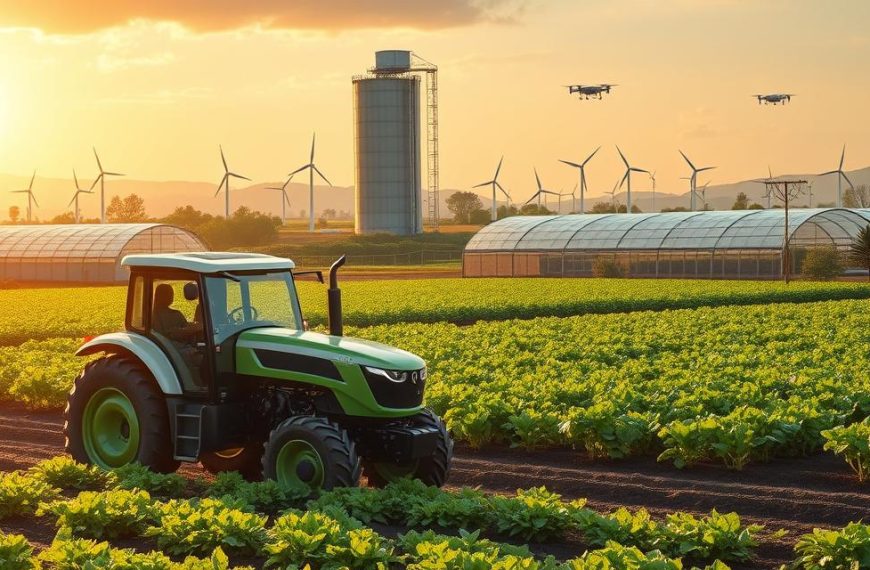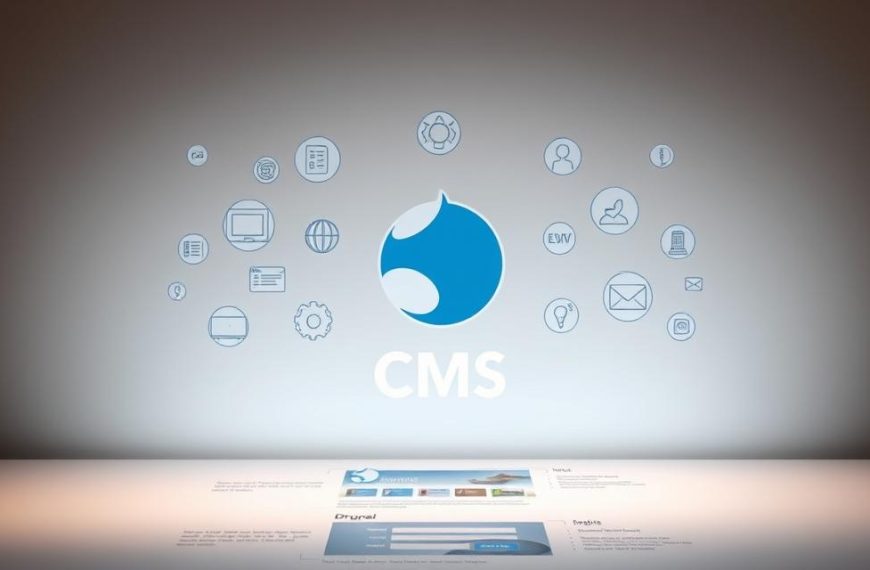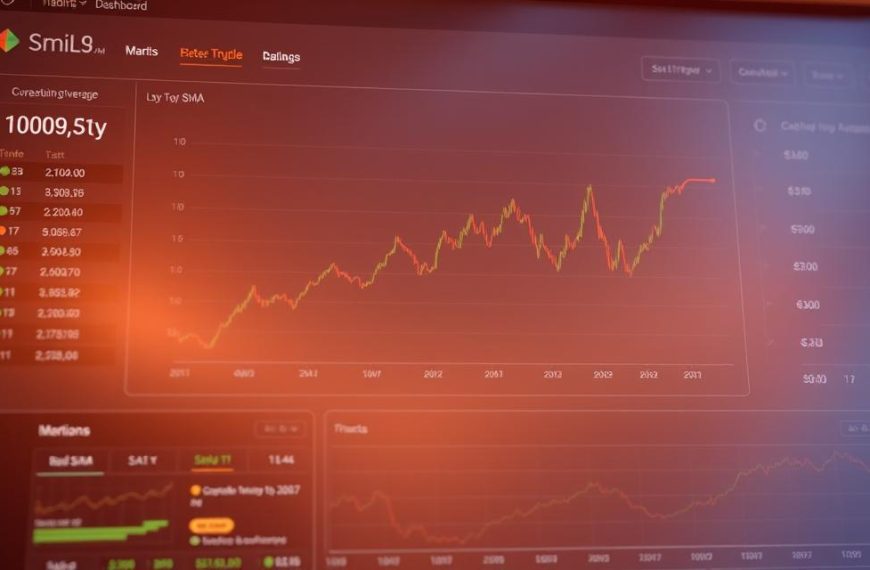Our digital age is rapidly evolving, making technology crucial. It’s reshaping how we live, work, and interact. In the U.S., 90% of adults use smartphones for daily communication1.
Digital solutions are streamlining our experiences. Businesses report 60% improved efficiency through advanced tech implementations1. The digital landscape is expanding quickly, affecting all aspects of life.
Technology’s impact goes beyond communication. By 2030, AI could add £15.7 trillion to the global economy1. This shows its potential across industries.
Cloud computing is now vital infrastructure. 70% of businesses invest in these solutions for better data management1. It enhances storage and accessibility.
Understanding technology’s importance is crucial in this digital revolution. It’s no longer a luxury, but a fundamental part of modern life. Technology drives innovation, connects people, and solves complex challenges.
The Evolution of Technology in Modern Society
Technology has changed our world in amazing ways. Our journey from basic tools to complex digital systems shows human creativity. This digital revolution keeps reshaping how we live and work.
Our digital revolution reflects how we adapt and innovate. It’s a testament to human ingenuity and our ability to evolve.
The word “technology” first appeared in the 1600s. It meant applied arts back then. Now, it covers a wide range of processes and ideas.
This change shows how tech and society grow together. It’s a fascinating look at human progress.
From Simple Tools to Complex Systems
Tech growth isn’t straightforward. It’s a mix of social needs, resources, and cultural openness2. Key factors driving innovation include:
- Social necessity
- Available resources
- Supportive cultural environment
The Digital Revolution’s Impact
The digital age has changed how we connect globally. Tech innovations have made life better in many ways. They’ve cut child deaths and helped people live longer3.
New farming tech has boosted crop yields. This has helped reduce hunger around the world3.
| Technological Milestone | Global Impact |
|---|---|
| Agricultural Innovation | Reduced Undernourishment |
| Medical Advancements | Increased Life Expectancy |
| Communication Technologies | Global Connectivity |
Transformation of Daily Life
Energy, electricity, and clean water have changed billions of lives. At first, new tech helps the wealthy. But over time, it spreads to help everyone3.
Each generation builds on past inventions. This creates more opportunities for progress2. Trade and skilled workers moving around have sped up tech sharing.
Better communication has also helped spread new ideas faster. This has led to quicker tech growth worldwide2.
How Important is Technology Today?
Technology has become crucial in our daily lives. It’s changing how we interact, work, and tackle complex challenges. In our fast-paced digital world, being tech-savvy is vital.
Over 90% of organisations are investing in digital transformation. This shows how important technology is in modern business strategies. Digital literacy is now a must-have skill set.
The demand for tech jobs is booming. IT roles like data scientists and software developers are set to grow by 22% from 2020 to 2030. This growth shows the rising importance of tech skills across industries.
- Communication has been revolutionised through global connectivity4
- Businesses are leveraging technology to gain competitive advantages4
- Automation is reducing labour time and increasing efficiency4
Tech’s impact goes beyond the workplace. Technological innovations are changing education, healthcare, and personal interactions. The global e-learning market is set to hit $375 billion by 2026.
Technology is not just a tool, but a fundamental driver of progress in the 21st century.
About 75% of businesses say tech has improved their communication and teamwork. AI and machine learning are speeding up decision-making. These technologies are opening doors to unprecedented innovation.
The Impact of Technology on Business and Industry
Digital advances are reshaping business operations, spurring innovation and growth. Companies must embrace technology to stay competitive in today’s market5.
Workplace automation and advanced tech are transforming modern businesses. Companies use various tech solutions to boost efficiency and streamline operations5.
Digital Transformation Strategies
Key tech advancements are reshaping business landscapes across sectors:
- Artificial intelligence improving customer experiences5
- Cloud computing enabling remote work capabilities5
- Internet of Things (IoT) tracking inventory and productivity5
Enhanced Business Communication
Global communication tech has changed how organisations interact. Collaborative tools now enable seamless remote work and international business operations6.
Automation and Efficiency
Businesses are increasingly adopting automation technologies to:
- Reduce operational costs
- Improve productivity
- Enhance customer service5
The future of business lies in embracing technological innovation and adapting to rapidly changing digital landscapes.
Technology’s Role in Global Connectivity
Digital connectivity has transformed global interaction and communication. It has broken down geographical barriers, enabling unprecedented levels of connection. In the past two decades, half of the developing world’s population has gained access to digital technologies7.
Technological innovations have dramatically shifted global communication. Social media now connects nearly half the world’s population. These platforms bridge cultural divides and create shared digital experiences7.
- Instant messaging platforms enable global conversations
- Video conferencing connects businesses worldwide
- Cloud technologies support seamless international collaboration
Communication technologies are evolving rapidly. 5G networks enhance connectivity, enabling IoT and faster transmission speeds. These speeds are 100 to 1000 times quicker than previous generations8.
At these incredible speeds, a two-hour movie can be downloaded in just 3.6 seconds9.
| Technology | Global Impact |
|---|---|
| 3.8 billion global users in 2018 | |
| Mobile Communication | Over two million apps available globally |
| Virtual Meetings | 25% increased attention span in virtual environments |
However, challenges persist in global connectivity. The proportion of women using the internet is 12% lower than men. This highlights ongoing digital inequality7.
The UN Secretary-General warns of potential digital fractures. These could arise due to rising geopolitical tensions7.
The Integration of Technology in Healthcare and Education
Technology is transforming healthcare and education. Digital solutions are changing how professionals deliver services. They’re also improving access to vital information10.
Medical Advancements and Innovation
Healthcare technology is driving big changes in medical treatment. It’s reshaping how doctors diagnose and treat patients. For example, 3D printing now creates custom titanium implants10.
This innovation significantly reduces the cost of personalised healthcare. It’s just one way technology is improving medical care.
- Robotic surgery simulators
- AI-assisted diagnostic tools
- Networked health sensors
- Personalized medicine platforms
Digital Learning and Remote Education
Digital tech has changed education dramatically. Online learning grew by an amazing 900% worldwide from 2000 to 2016. By 2020, 1.22 billion people globally were learning online11.
| Educational Technology Trend | Impact |
|---|---|
| E-learning Platforms | Increased accessibility |
| Virtual Classrooms | Enhanced remote learning |
| Digital Learning Management Systems | Streamlined educational delivery |
Technological Solutions in Healthcare Delivery
Telemedicine and digital health tech are changing how patients interact with doctors. The COVID-19 pandemic sped up telehealth adoption. Healthcare systems quickly developed new digital skills11.
These tech solutions are making healthcare more efficient and accessible. They’re improving the overall patient experience.
The future of healthcare and education lies in seamless technological integration.
Digital Innovation and Economic Growth
The digital economy is reshaping global economic landscapes. It’s driving unprecedented technological innovation and economic development. Businesses are experiencing radical shifts in their operations and competition.
Digital transformation is vital for organisations seeking growth. About 60% of businesses report improved efficiency through digital initiatives. The digital economy is projected to reach £23 trillion by 2025.
- Businesses with strong digital capabilities are 2.5 times more likely to experience revenue growth12
- Companies leveraging big data analytics can increase profitability by 8-10%12
- Technological innovation is reshaping employment models12
Small and mid-sized businesses are crucial in this digital shift. In the UK, SMBs represent nearly 50% of private sector turnover. Digital adoption helps these businesses create new products and access emerging markets.
The future of economic growth is intrinsically linked to technological innovation and digital capabilities.
Technological development significantly impacts national economic growth. A 10% increase in broadband penetration can add 1.3% to a high-income country’s GDP. This highlights the importance of digital infrastructure in driving economic progress.
The global landscape is evolving with digital technologies. They’re democratising access to economic opportunities. From AI to advanced manufacturing, tech innovation continues to reshape business operations.
Technology’s Impact on Human Behaviour and Society
The digital world has changed how we interact and see things around us. Technology now shapes our social life and how we behave online.
Social Media and Communication Patterns
Social media has changed how we talk to each other. People check their phones about 100 times a day. They spend nearly 29.4 hours per week on smartphones.
Digital connectivity has made our social networks stronger. But it has also brought new mental challenges.
- Social media can provide valuable support networks13
- Prolonged use negatively impacts self-esteem13
- Online platforms contribute to information dissemination
Digital Literacy and Skills Development
As tech grows fast, we need to keep learning. Digital skills are key for work and personal life today.
| Digital Skill Area | Importance Level |
|---|---|
| Technology Adaptation | High |
| Online Communication | Critical |
| Data Interpretation | Essential |
The Future of Human-Machine Interaction
AI and machine learning are changing how we interact with tech. AI can process huge amounts of data better than humans. This could help us make better choices.
Technology will continue to evolve, but human agency remains paramount in directing its development and application.
We need to understand our online habits. This will help us build good relationships with machines. It’s important for our mental health and tech growth.
Challenges and Considerations in the Digital Age
The digital world presents unique challenges that require careful navigation. Cybersecurity threats have become more sophisticated, forcing organisations to bolster their defences14. These challenges go beyond tech, touching on complex ethical issues that affect society’s core15.
Digital transformation challenges are evolving quickly. They impact how we live, work, and interact with each other.
Key technological challenges include:
- Misinformation proliferation in digital spaces14
- Privacy concerns in online environments15
- Potential job displacement through automation14
Technology ethics requires a thorough approach to tackle new digital issues. Experts caution about the growing digital divide, creating gaps in tech access and opportunities14.
The mismatch between tech progress and society’s adaptation puzzles policymakers and innovators alike14. This gap poses significant challenges for our future.
“Our technological capabilities are expanding faster than our ability to manage their societal implications.”
New tech brings both promise and potential risks. Our growing reliance on digital systems raises questions about resilience and vulnerability14.
Organisations must focus on strong cybersecurity strategies to guard against complex digital threats15. This is crucial for their survival and growth.
Moving forward, we need flexible regulatory frameworks. Taking proactive steps in tech ethics will help manage the complex digital landscape14.
These efforts will ensure we use technology responsibly and for the benefit of all.
Conclusion
Technology is reshaping our world, driving changes across multiple sectors. Digital readiness is now crucial for individuals and organisations16. Professionals must stay agile and embrace emerging technological trends17.
Technological advancement transforms human experiences beyond mere innovation. It now includes understanding complex technological ecosystems16. Digital solutions have enhanced operational efficiencies, changing how we interact with technology17.
The future promises revolutionary changes in various fields. Communication, healthcare, education, and industrial processes will see significant shifts18. Challenges like cybersecurity remain, but the potential for positive transformation is vast16.
Lifelong learning and forward-thinking are key to navigating this dynamic landscape. Our success hinges on our ability to understand and responsibly use digital innovations. The future demands curiosity and adaptability in our interconnected digital world.
FAQ
How has technology transformed our daily lives?
Technology has revolutionised daily life by enhancing communication, transportation, and personal conveniences. Smartphones and digital assistants have become integral to modern living. These innovations have reshaped how we work, communicate, and interact with the world.
Why is digital literacy important in today’s world?
Digital literacy is crucial as technology permeates professional and personal spheres. It enables people to navigate digital platforms and understand technological tools effectively. Proficiency in digital skills is now essential for career advancement and personal development.
How is technology impacting global business communication?
Technology has transformed business communication by enabling global collaboration and real-time connectivity. Digital platforms allow organisations to connect across geographical boundaries. This facilitates instant communication and seamless international interactions that were previously impossible.
What are the key technological advancements in healthcare?
Healthcare technology has advanced through innovations like robotic surgery and AI-assisted diagnostics. Telemedicine and digital health monitoring have also made significant strides. These technologies improve patient care and enable remote consultations.
What cybersecurity challenges do organisations face today?
Modern organisations face complex cybersecurity challenges including data breaches and ransomware attacks. Phishing attempts and sophisticated digital threats are also major concerns. Robust security measures and continuous employee training are essential to mitigate these risks.
How is technology driving economic innovation?
Technology is driving economic innovation by creating new business models and enabling digital economies. It supports entrepreneurship and transforms traditional industries. Digital platforms democratise access to financial services and create new job opportunities.
What are the ethical considerations surrounding technological advancement?
Ethical considerations include data privacy and potential job displacement through automation. Digital addiction and misinformation spread are also key concerns. Developing comprehensive regulatory frameworks is crucial to addressing these challenges.
How is artificial intelligence changing workplace dynamics?
Artificial intelligence is transforming workplace dynamics by automating repetitive tasks. It enhances decision-making processes and improves productivity. AI also creates new roles focused on its management and development.
What role does technology play in education?
Technology has revolutionised education through e-learning platforms and digital classrooms. Interactive learning tools and remote educational opportunities have enhanced accessibility. These innovations provide global access to educational resources across diverse backgrounds.
How can individuals stay technologically relevant?
To remain technologically relevant, individuals should engage in continuous learning. Developing digital skills and staying informed about emerging technologies is crucial. Participating in online training programmes and maintaining a curious mindset towards technological advancements is also important.
Source Links
- https://www.information-age.com/modern-technology-advantages-disadvantages-5283/
- https://www.britannica.com/technology/history-of-technology
- https://ourworldindata.org/technological-change
- https://www.simplilearn.com/importance-of-technology-article
- https://studyonline.unsw.edu.au/blog/how-can-technological-changes-affect-business
- https://www.herzing.edu/blog/impact-technology-business
- https://www.un.org/en/un75/impact-digital-technologies
- https://www.apu.apus.edu/area-of-study/information-technology/resources/the-it-industry-how-todays-technology-can-shape-our-future/
- https://www.forbes.com/sites/solrogers/2019/10/15/the-role-of-technology-in-the-evolution-of-communication/
- https://pmc.ncbi.nlm.nih.gov/articles/PMC4147743/
- https://pmc.ncbi.nlm.nih.gov/articles/PMC8855755/
- https://researchfdi.com/how-technology-is-changing-the-landscape-of-economic-development/
- https://imotions.com/blog/learning/research-fundamentals/technological-influences-on-behavior-insights-and-implications/
- https://www.pewresearch.org/internet/2020/06/30/tech-causes-more-problems-than-it-solves/
- https://media.statler.wvu.edu/engineering-wv-magazine/spring-2022/navigating-the-digital-age
- https://www.simplilearn.com/how-has-technology-improved-our-lives-article
- https://www.henryharvin.com/blog/what-is-the-importance-of-technology-in-our-life/
- https://www.telefonica.com/en/communication-room/news/the-importance-of-connectivity-in-the-future-of-technology/












